Imam Khomeini was an exceptional figure in world history who gave the hope for domination of the Truth over the False to the oppressed people around the globe relying on the power of the Divine Word of “Allah” and with a confident and brave heart. To commemorate the forty second anniversary of the magnificent victory of Islamic Revolution, SAEDNEWS has conducted an exclusive interview with Professor Abdolhussein Khsrowpanah of Institute for Islamic Culture and Thought in Tehran on the dimensions of Imam Khomeini’s Character:
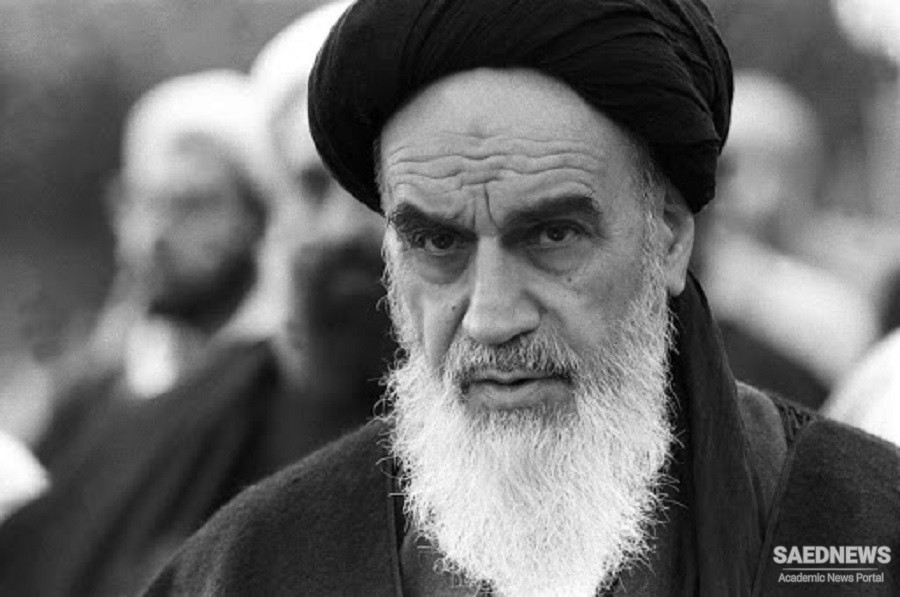
SAEDNEWS: Imam Khomeini’s character as the Supreme Leader and Founding Father of Islamic Revolution in many occasions has been reduced into a “political and religious leader” and many significant aspects of his character including his intellectual, philosophical and mystical activities are not taken into due consideration. Would you please give us an account of the character of Imam Khomeini as a philosopher and a mystic in the light of his particular method within the context of Islamic philosophy and mysticism?
Professor A. Khosrowpanah: In the Name of Allah the Merciful the Compassionate. Congratulations of these holy days of the “Dawn Decade” [Ten Days starting by arrival of Imam Khomeini to Iran from France on February 1, 1979, and final victory of Islamic Revolution on February 10, 1979). I extend my gratitude to SAEDNEWS for hosting this interview. First point that I should mention here is that we should not underestimate such titles as “political leader” or “Supreme Leader of Islamic Revolution”. The fact that we introduce Imam Khomeini as a religious-political leader is not indeed a matter of using a low title. We should not think that using the title “religious-political leader” for Imam Khomeini is not intelligible arguing that Imam Khomeini’s character had “intellectual, philosophical and mystical dimensions” and it is indeed unfair to call him a “religious and political leader”. As a matter of fact, when we use the title “political and religious leader”, our intended dimensions are also presupposed in the title. For when one speaks of “religious leader”, he would once intend to refer to a religiously minded leader while in other occasion the same title is used for a leader who is a religious intellectual. A religious intellectual can be a thinker with a jurisprudential-theological approach or a thinker with a philosophic-mystical perspective. Imam Khomeini’s approach was a philosophic-mystical one. Therefore, using the title “religious-political leader” for Imam Khomeini has no problem. Of course, these issues and features of Imam Khomeini’s character need to be explained. We have to first explain what does being a “religious political leader” mean? Religious political leader in this context refers to a religious thinker or intellectual. Imam Khomeini’s approach was a “philosophic, mystical and jurisprudential” approach. Using the title “political leader” for Imam Khomeini implies that Imam Khomeini was a leader who led his nation based on a philosophical outlook. Imam Khomeini’s character is based on his “philosophic, mystical and jurisprudential” character. Imam Khomeini was professor of the advanced courses in philosophy in Qom Seminary. He taught Mulla Sadra’s magnum opus voluminous “Asfar”. He taught such brilliant pupils as Ayatollah Haqshenas, Professor Mahdi Haeri Yazdi, Professor Morteza Motahari and Grand Ayatollah Hossein Ali Montazeri. This demonstrates well that Imam Khomeini had an exceptional capability in the domain of philosophy. He was scientifically competent to raise such brilliant pupils. In mysticism, Imam Khomeini was a pupil of the famous Shia mystic Grand Ayatollah Shahabadi. In his youth time, Imam Khomeini published several annotations of key mystical works including Qeysari’s Commentary of Ibn Arabi’s “Fusus Al Hikam” and Fanari’s “Misbah Al Uns”. Imam Khomeini’s mystical works including mystical exposition of morning pray, commentary of Misbah Al Uns and Arbaeen have been published by the Institute for Publication of the Works of Imam Khomeini in Tehran. These works are of mystical bent and the wayfarers are using of these works. Imam Khomeini’s philosophical lectures have also been compiled and published in three volumes including Imam Khomeini’s lectures on “Manzumeh of Hajji Sabzewari” and Mulla Sadra’s Asfar. These works show that Imam Khomeini had been a seasoned expert in the domains of philosophy and mysticism. The letter sent by Imam Khomeini to Michail Gorbachev the General Secretary of the Soviet Union on 7 January 1989 through Ayatollah Javadi Amoli, Mrs. Dabbagh and Professor Mohammad Javad Larijani is in fact a letter of mystical monotheism. The poems that remain from Imam Khomeini have a mystical bent. Therefore, Imam was a religious thinker who served as the political leader of a society and handled this leadership based on his philosophical, mystical and jurisprudential approach.
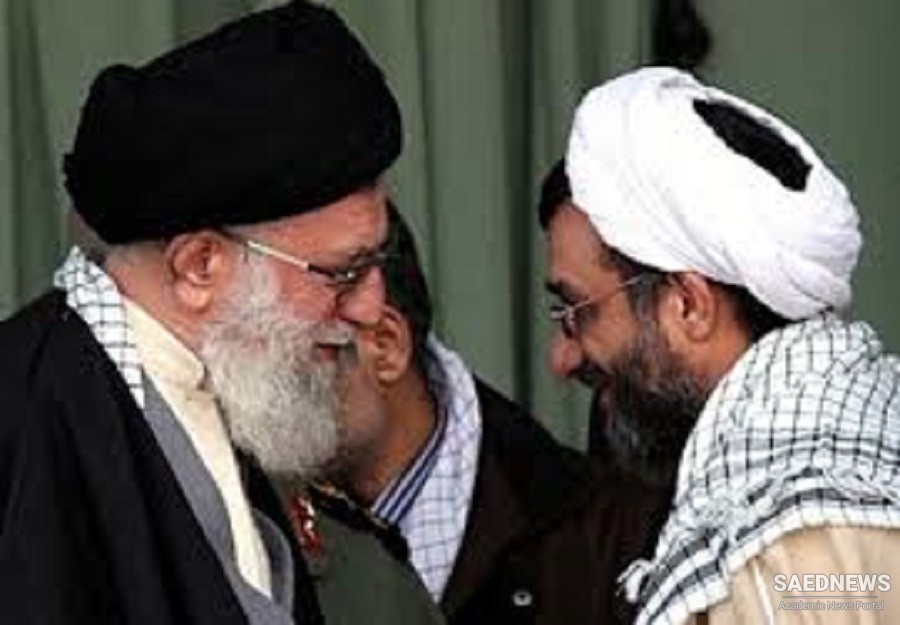
SAEDNEWS: Given the point you’ve just mentioned above, can we say that this particular philosophical and mystical vision of Imam Khomeini informed his political approach specifically his theory of “Velayat-e Faqih” and establishment of a regime based on the “Rule of Allah”?
Professor A. Khosrowpanah: In fact, this particular philosophical and mystical vision helped Imam Khomeini to have a more precise understanding of religious doctrines. Relying on this intellectual, philosophical and mystical background, Imam managed to acquire a more accurate notion of political jurisprudence. However, it is not reasonable to argue that if Imam Khomeini did not have the mystical and philosophical vision he had, he would fail to develop the theory of “Velayat-e Faqih” [Jurist’s Sainthood]. It was indeed Imam Khomeini’s courageous jurisprudential efforts that gave the audacity to him to speak of “Rule of Allah”. In other words, Imam had already reached such a comprehensive competence in jurisprudence that was required for setting the scene for this discourse. The second point is that there were some people then who had similar jurisprudential competency as well as mystical and philosophical talent but they lacked the required courage. There were also courageous jurists who were not a philosopher or a mystic. For example, Ayatollah Lari Najafi Dezfuli led an uprising in Larestan and established his own intended system. Mohaqeq Karaki was sympathetic with the theory of “Velayat-e Faqih” and played his own role in the political system. Of course, as we mentioned earlier in this interview, it was Imam Khomeini’s mystical and philosophical approach that allowed him to have a more accurate vision of these issues.
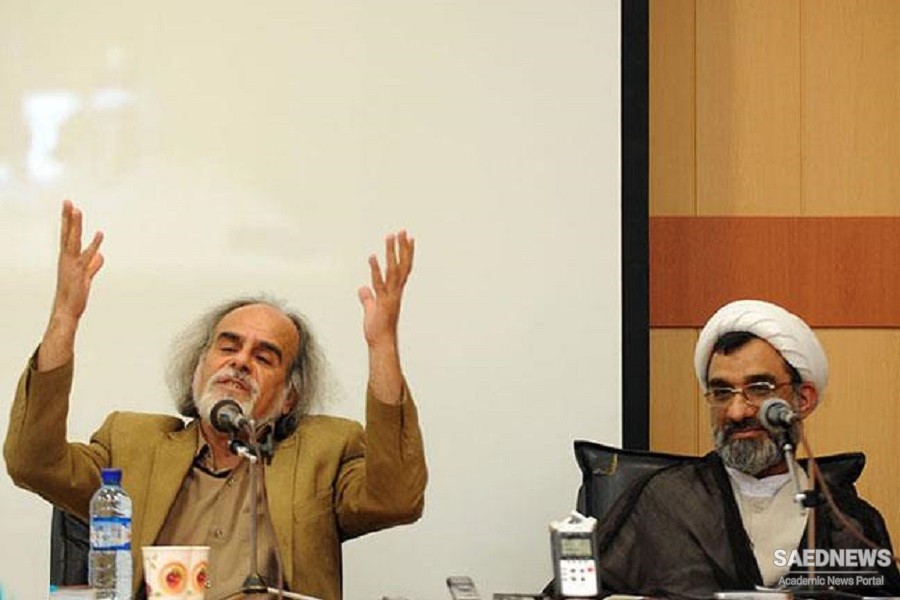
SAEDNEWS: Does philosophy in its specific ontological sense given the ontological agenda of Muslim philosophers in your view, have a relationship with politico-social movements? Whether this mobilization is an essential property of philosophy or it is accidental or even failure of philosophy?
Professor A. Khosrowpanah: Philosophy in its ontological sense is a discussion of “Primacy of Existence” and as a result, human existence as well as the substantial movement of natural world and human being. This is Mulla Sadra’s view of philosophy. According to Primacy of Existence, Analogical Gradation of Existence, Substantial Movement and Diverse Human Species, a particular philosophical anthropology takes form that can serve as a basis for a political discourse that mobilizes social entities towards their liberty, independence and rights. To put it otherwise, relying on these philosophical foundations, we can reach a set of foundations and principles that are the foundation of social philosophy and political philosophy. We should not necessarily expect philosophical debates including ontology, epistemology, and anthropology directly create movements rather these debates are in fact, the foundations of a movement. Every type of political and social movement has its own particular philosophical and intellectual foundation.
SAEDNEWS: One of the key aspects of Imam Khomeini’s thought is mysticism. Many think that mysticism consists of secluding oneself from the social scenes and inner contemplation. What kind of mystical vision did Imam Khomeini that gave rise to this historical movement?
Professor A. Khosrowpanah: Imam Khomeini’s Mysticism was an Islamic mysticism. Islamic mysticism is a social mysticism. Self-discipline is meaningless in seclusion rather this self-puirification must be done as a prelude to one’s involvement in social, political, economic, security, defensive and even health activities. Then, Imam Khomeini was against a negative Sufi mysticism. Even Imam Khomeini did not accept the vision of the Sufi mystics who were active is social context but with a secular political approach. He believed in Four Journeys: 1- Journey from the Creatures to the Truth, 2- Journey by the Truth in Truth, 3- Journey from the Truth to the Creatures by the Truth, and 4- Journey in Creatures by the Truth. This last journey, i.e. “Journey in Creatures by the Truth”, exactly denotes the presence of a mystic in the society along with the people. Imam Khomeini had such an approach and naturally he was against seclusion.
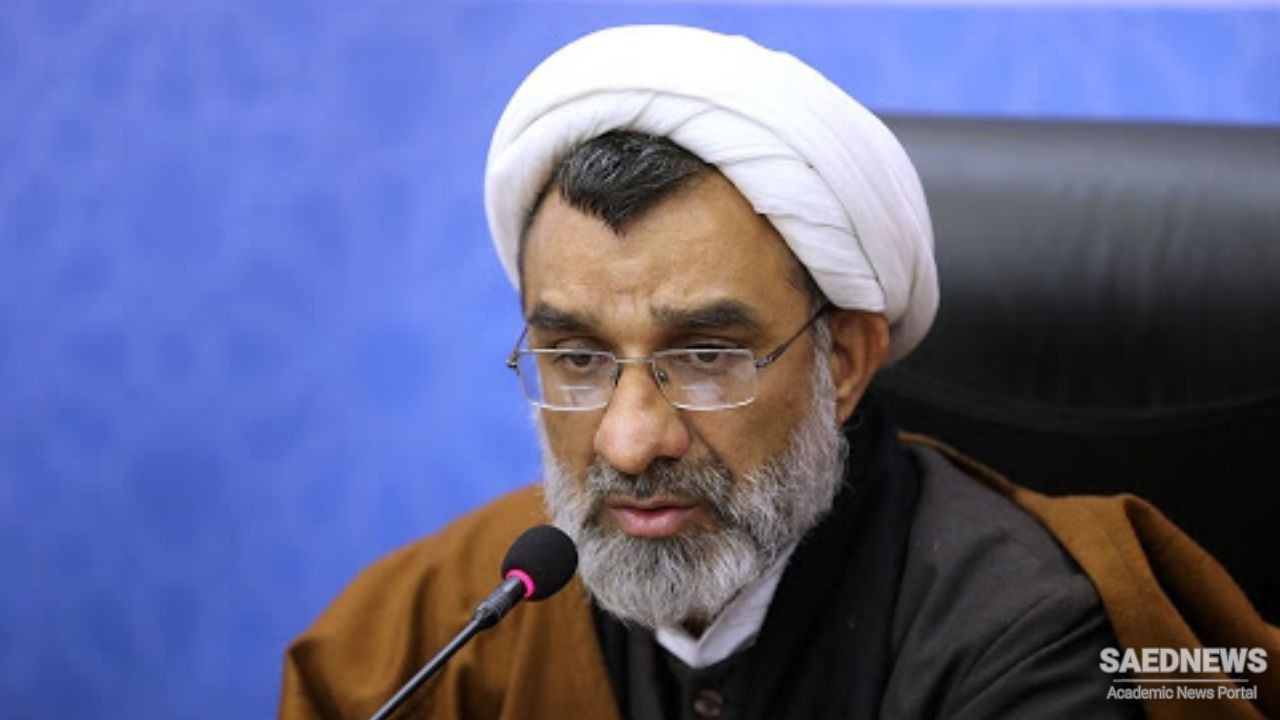
SAEDNEWS: Imam Khomeini’s Pupils are all distinguished revolutionaries in the domain of mysticism and philosophy. Recently we lost one of these brilliant political, cultural and philosophical figures. Grand Ayatollah Mesbah Yazdi was a distinguished philosopher and a true and loyal proponent of Velayat-e Faqih. Though Professor Mesbah was a peripatetic philosopher while Imam Khomeini was a disciple of Mulla Sadra, they both shared the same political ambitions and outlook?
Professor A. Khosrowpanah: Since Imam Khomeini was himself a religiously minded Islamic scholar, his pupils had similar approach. Imam Khomeini’s pupils indeed follow the political and social school of Imam Khomeini. Ayatollah Mesbah Yazdi was not an exception to this rule. He devotedly defended Velayat-e Faqih against the objections. Of course, I do not share your view of Ayatollah Mesbah as a Peripatetic Philosopher rather he accepted many key doctrines of Mulla Sadra including the Primacy of Existence, Analogical Gradation of Existence, and Substantial Movement. However, he preferred to use a discursive and rational method in discussion. He did not use Koranic verses as a basis for his argument and saw this inappropriate within a philosophical context. Imam Khomeini was also of the same perspective. Nevertheless, there are some commentators of Mulla Sadra’s philosophy who prefer to use Koran and its verses too, e.g. Ayatollah Javadi Amoli. This preference of discursive method does not necessarily imply that Ayatollah Mesbah was Peripatetic.
SAEDNEWS: Given the fact that Islamic Revolution was a “cultural” revolution and given that the leaders of this revolution has a cultural approach, how could we interpret the “project of New Islamic Civilization” developed by Supreme Leader Ayatollah Khamenei in view of this cultural approach? Does this project have a relationship with the connection of Islamic Revolution with the Global Revolution of the Occulted Twelfth Imam of Shia Islam?
Professor A. Khosrowpanah: The essence of Islamic Revolution was cultural from its very inception. The project of “New Islamic Civilization” as raised by Supreme Leader Ayatollah Khamenei is also a Cultural Revolution along the Islamic Revolution of Iran. Naturally, if this is not accomplished, the emergence of the Twelfth Imam will never happen. It is not so that Imam will come and slay people. This mission of globalization of the message of Islamic Religion will be done through rational argument and logic, because the majority of people listen to logic though there are some people who prefer to be treated by swords. Rationality is also a significant element of “New Islamic Civilization”. Therefore, there is a substantial relationship between Islamic Revolution of Iran and Cultural Revolution and Revolution of Imam Al Mahdi, on the one hand, and New Islamic Civilization, on the other hand. As Supreme Leader has stated, we have failed to form an “Islamic Government”. The revolutionary faithful youth are in charge of the establishment of Islamic Government. I believe that now we are grappling with serious problems in both executive and legislative domains and it is indeed the full implementation of the formation of an Islamic Government that can tackle the problems.

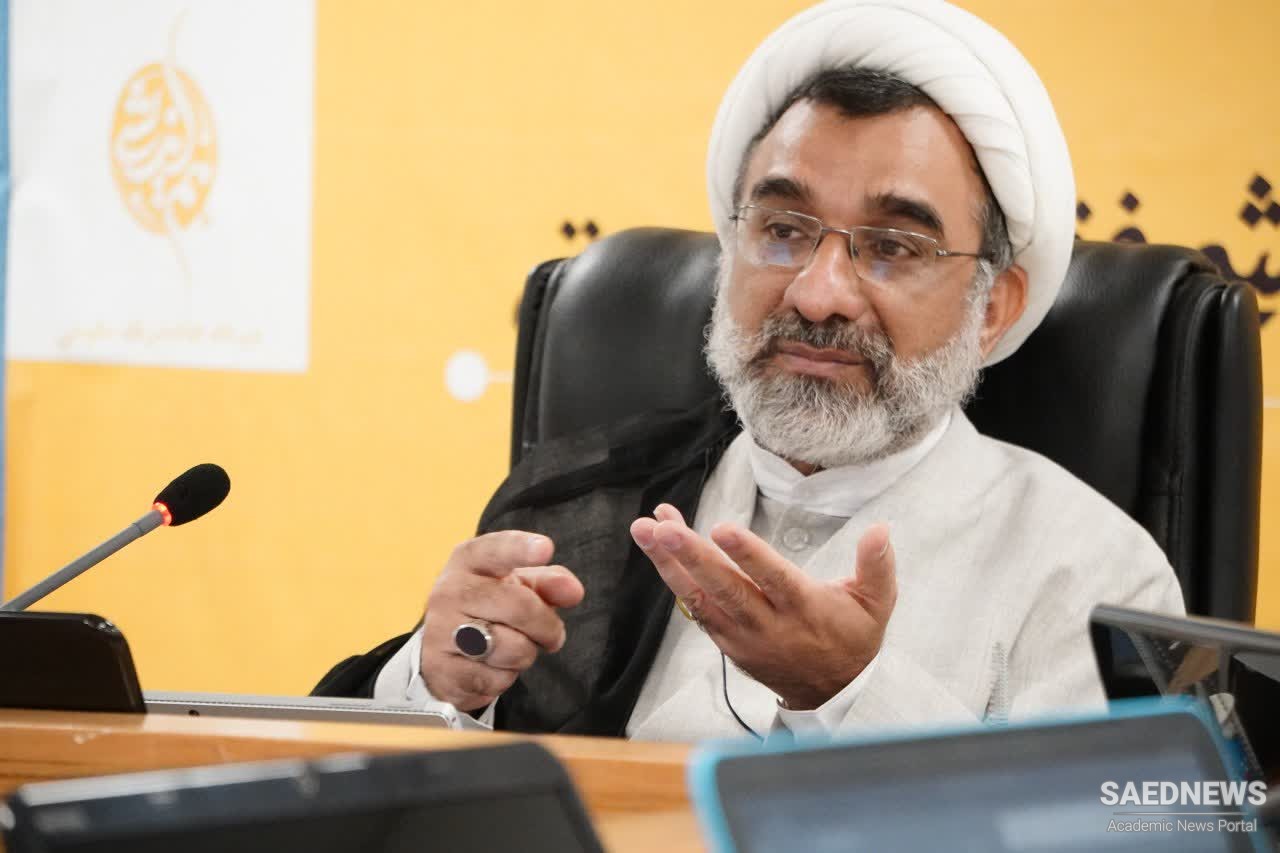
 SAEDNEWS Exclusive Interview with Yaser Soleimani the Nephew of Major General Soleimani
SAEDNEWS Exclusive Interview with Yaser Soleimani the Nephew of Major General Soleimani














































